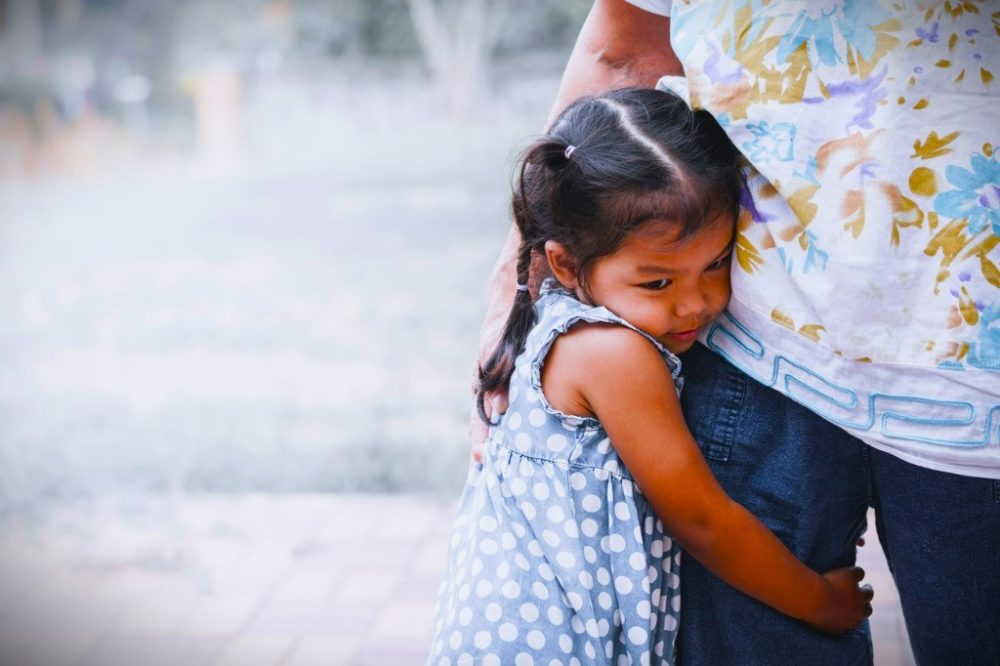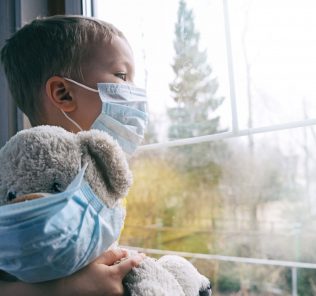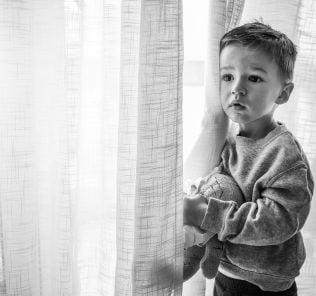Watching your child go off to school for the first time is heartstring-tugging at the best of times, but if they’re sobbing, miserable, and begging for you not to leave it can be nothing short of traumatic for all concerned. With the new school term now in full swing, you might expect that separation anxiety and tears at morning drop-off would have fallen by the wayside at this point. But this is not always the case, say experts. And for ‘Covid babies’ – children who were born either just before or during the pandemic, some of whom will be starting school for the first time this academic year – it’s likely to be even worse, according to leading UAE psychologists. Parents are being urged to look out for the signs and take steps to help ensure their child’s transition into education this August into September is a smooth one.
Starting school for ‘Covid babies’
Anthony Nhlapo, Clinical Psychologist at Priory Wellbeing Centre, Dubai, says:
“Every parent wants their child to have a wonderful experience when they start nursery or school for the first time. The pandemic, however, has impacted this opportunity for many young children.
“I have witnessed an increase in underdeveloped social skills and separation anxiety among young children, which may be related to the pandemic and its associated restrictions at a young age. This could have a negative impact on their ability to adjust to any new social environment – especially a school setting. They may feel overwhelmed and have difficulty establishing and maintaining healthy relationships. Social anxiety will certainly make it difficult for them to enjoy and fully immerse themselves in the school environment, with the risk of adversely affecting their learning ability.”
Rania Ali, Psychologist at Priory Wellbeing Centre, Dubai, adds:
“Children will spend a large proportion of their day in school, so it’s vital they feel happy and included. Aside from the educational element, school also plays an important role in enhancing a child’s emotional and social growth. It is here they learn to foster their communication and social skills, learn how to become part of a team, appropriately express and regulate their feelings and emotions – in addition to understanding those of their peers. They learn how to control their actions, take turns and are exposed to society ‘rules’ from an early age.”
How to tell if your child’s school reluctance is something to worry about?
It is normal for children to get upset in the first few weeks of a new school or new school year, says Paula Phinn, Primary Vice Principal, GEMS Wellington Academy – Al Khail:
“Expect some tears: new settings can be unsettling – even if your child is really confident or if they have been to nursery before.”
Try not to worry unduly if their distress starts a few days or weeks in, either, adds Ms Phinn:
“It might not happen on day one, and children can regress once they realise going to school is a repeat routine. Take advice from your child’s teacher (out of earshot of your child) about the best way to support your child.”
As your child settles into their new environment and starts making friends and feeling comfortable, the distress at the moment of parting from you should gradually subside.
But what if it doesn’t? Common signs and symptoms that could point to more pressing issues, such as social and separation anxiety, among children in those early first days of starting school, include:
- – Persistent changes in their eating and sleeping patterns
- – Tantrums that were not common prior to starting school
- – Aggressive behaviour
- – Social withdrawal
- – Crying spells that are inconsolable
- – Refusal to go to school despite constant encouragement
- – ‘Clingyiness’ that was not present before starting school
- – Bedwetting that was not present before starting school
Tips for a smooth, separation anxiety free drop-off
There are few worse ways to start the day than by extricating yourself from a tearful toddler or worrying a miserable child who says they do not want to go to school.
Paula Phinn, Primary Vice Principal, GEMS Wellington Academy – Al Khail, adds her advice for a smoother drop-off experience:
- Be excited. Parents of young children can sometimes be more anxious than their children – especially if they have been upset in the recent past. Make sure your child doesn’t pick up on your anxiety – positive language and body language are key.
- Acknowledge your child’s anxiety, but don’t dwell on it. Talk to them about all the fun things that they will do in school, but only for a short time.
- Limit yourself to only holding hands when entering the school and class so your child can be left with the teacher easily – carrying your child can make it trickier for them to let go.
- Trust the adults and leave quickly. Try to resist hanging around to peek through a window, as this can be unsettling for your child and others. A quick exit is definitely the best thing for your child. If you are worried, ask your child’s teacher to call or email you with an update as soon as they can. Most schools will have a waiting area so you can be nearby for updates.
- Allow your child to bring a special toy to school to keep in their bag. This can help to bridge the gap between home and school. This can be phased out as your child becomes increasingly comfortable in the school environment.
- Talk to your child’s teacher and leaders in school. We are here to support you and have worked with many families over the years. It is natural to have some anxiety, but talking to others and taking advice can really help.
For those children who are displaying signs of social anxiety or a reluctance to leave their parents or caregivers for any period of time, Anthony Nhlapo, Clinical Psychologist at Priory Wellbeing Centre recommends the additional tips to help them settle into school:
- Validate and acknowledge your child’s fears and anxieties of being in a new environment. Be ready to answer their questions in a simple way and let them know that they are not being a difficult child for not wanting to go to school.
- Offer plenty of reassurance. Ensure your child is aware of your continued support and care as they try to adjust to their new school environment.
- Give your child a hug before going to school. This can help lessen tension and anxiety that the child is feeling in the morning before going to school.
- Learn to say “goodbye” and “I will see you later” to your child daily. This small gesture can help them internalize that separation (i.e. dropping the child off or taking the child to the bus) and reunion (picking them up) are not mutually exclusive experiences, but part of the process of parting and meeting.
- Spend daily, quality time with your child – so that they can feel more supported and connected to you as they acclimatize to a new environment. Share your first experience of school with them, to help ‘normalise’ their worries and ensure they are involved and feel included in all aspects of school preparation, such as choosing stationery, new shoes etc.
- Organise play dates – these are a great opportunity for children to extend contact with their peers beyond the school boundaries. They will help encourage quick familiarity and foster emotional bonds that will help your child feel safe and secure at school.
- Implement a responsible sleep routine several days before the school terms begin – so they are always well rested to start a new and challenging day.
- Speak to the teacher. Most teachers have plenty of experience in dealing with a whole host of challenges that can affect new school starters. Parents can work with the teacher and/or school counsellor to provide a stimulating and supportive atmosphere to help with a smooth transition.
- Hybrid learning or flexible schooling. This is an option that can be considered for children who are really struggling to settle. Alternating between in-person and online learning can help to lessen anxiety, while also ensuring continued learning.
- Seek professional help. If a child’s symptoms appear to be persistent and unabating, consult a child psychologist/counsellor to help you and your child learn ways to manage the transition.
Rania Ali, Psychologist at Priory Wellbeing Centre adds:
“Lastly, it’s important to add how parents are role models and those who successfully manage their own anxieties associated with their child starting school and growing up generally, will be better able to contain their child’s anxiety as they embark on this exciting new chapter in their lives.”
© SchoolsCompared.com. 2022. All rights reserved.

































































Leave a Response